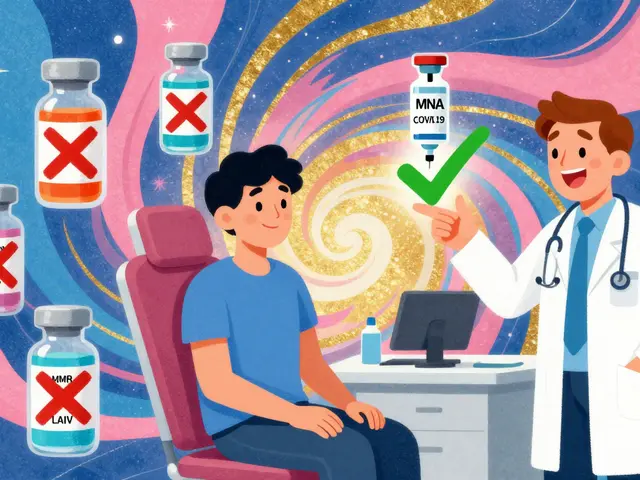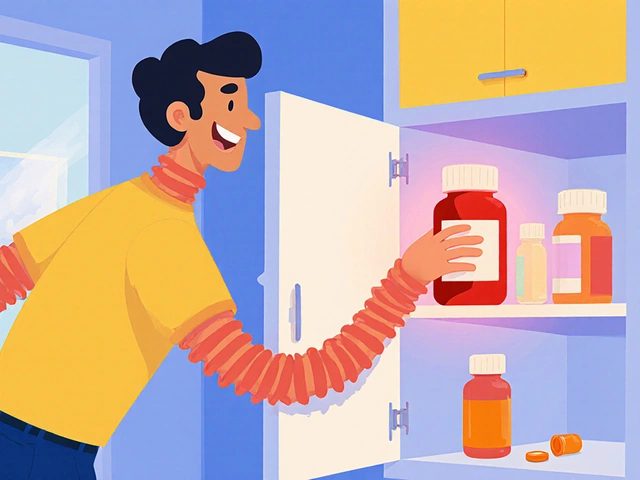Cardiovascular Health Tips: Simple Ways to Keep Your Heart Strong
Your heart works nonstop, so giving it a break with smart habits makes sense. Most people think heart disease shows up later in life, but the choices you make today set the tone for tomorrow. A few everyday tweaks can add years of good health without turning your routine upside down.
Everyday habits that protect your heart
Start with food. Swap processed snacks for fresh fruits, veggies, and nuts. Those fiber‑rich choices keep cholesterol low and blood sugar steady. Cut back on salty foods – a pinch less salt each meal can drop blood pressure without you even noticing.
Move your body. You don’t need marathon training; 30 minutes of brisk walking, cycling, or dancing three times a week does the trick. Even short bursts—like climbing stairs instead of the elevator—add up and boost circulation.
Sleep matters too. Aim for seven to nine hours nightly; poor sleep spikes stress hormones that can raise heart rate and blood pressure. A dark room, consistent bedtime, and limiting screens before bed help you hit quality rest.
Spotting warning signs and managing risk factors
Know your numbers. A quick check of blood pressure at the pharmacy or with a home cuff tells you if you’re in the safe zone (under 120/80). High readings often have no symptoms, so regular monitoring catches issues early.
Cholesterol isn’t just about “good” vs. “bad.” Keep LDL under 100 mg/dL and HDL above 50 mg/dL if you can. Simple blood tests every couple of years give a clear picture; talk to your doctor about what’s normal for you.
Stress is a hidden culprit. Chronic stress raises cortisol, which can increase blood sugar and blood pressure. Try quick relaxation tricks—deep breathing for a minute, a short walk outdoors, or listening to calming music—to keep stress in check.
If you smoke, quitting is the single biggest boost for heart health. Even cutting back reduces plaque buildup. Need help? Many pharmacies offer nicotine patches or gum, and support groups can keep you motivated.
Alcohol should be moderate: up to one drink a day for women, two for men. Excess drinking spikes triglycerides and adds extra calories that can lead to weight gain—another heart strain.
Keep an eye on your waistline. Belly fat releases inflammatory chemicals that harm arteries. A simple tape measure around the belly should stay under 35 inches for women and 40 inches for men.
Use technology if you like. Apps can track steps, meals, blood pressure, and remind you to take meds. Seeing progress on a screen often makes sticking to goals easier.
Finally, schedule regular check‑ups. Your doctor can spot silent issues, adjust medications, and give personalized advice based on your family history. A quick visit each year is a small time investment for big heart returns.
Take one habit today—swap a soda for water, walk an extra block, or set a sleep alarm. Small changes stack up fast, and your heart will thank you with fewer doctor visits and more energy to enjoy life.
Stroke Prevention: The Benefits of Regular Physical Activity
Hi there! I just posted a new article that explores the incredible benefits of regular physical activity for stroke prevention. I pulled together some compelling research findings that highlight why it's so essential to keep our bodies moving. In just the span of this short read, you'll discover how regular exercise can boost your cardiovascular health, reduce stroke risk and change your life for the better. I can't wait for you to read it and start your journey towards a healthier lifestyle.






